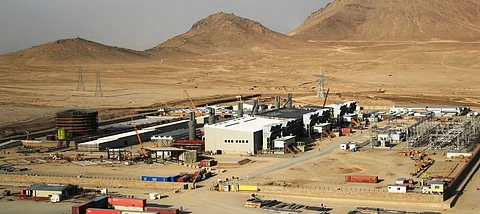

Afghanistan and Uzbekistan have signed a landmark $10 billion energy agreement intended to dramatically transform Afghanistan’s power infrastructure and achieve near-universal electricity coverage over the next decade.
At a signing ceremony held Sunday in the Uzbek capital of Tashkent, Afghanistan’s Acting Minister of Energy and Water, Abdul Latif Mansoor, and Deputy Prime Minister Mullah Abdul Ghani Baradar formalized the deal alongside Uzbek officials. The agreement will establish new power generation projects across Afghanistan, including solar, coal, hydro, wind, and gas plants, with the goal of producing 10,000 megawatts (MW) of electricity by 2032. Of that capacity, 4,000 MW will be allocated for public consumption, while the remaining 6,000 MW will supply the industrial sector in an effort to boost economic output.
Currently, only about one-third of Afghanistan’s population has access to consistent electricity, with severe shortages and routine power cuts common, especially in rural areas. Chronic power deficits have also hampered the development of local industries, limiting job growth and economic resilience.
Since returning to power in 2021, the Taliban government has made energy self-sufficiency a cornerstone of its development strategy. While dozens of substations and transmission lines have been built in recent years, the scale has not been sufficient to meet national demand.
In addition to the new agreement, several major infrastructure projects are underway. Among them is the Surkhan-Puli-Khumri transmission line, expected to bring power to an estimated 10 million Afghan households, and the TAP-500 project, which will connect a transmission corridor from Turkmenistan to Pakistan via Afghanistan.
The CASA-1000 initiative, designed to transmit hydroelectric power from Central Asia through Afghanistan to Pakistan, is projected to come online within the next 18 months. However, none of these projects rival the scale or ambition of the deal signed Sunday with Uzbekistan.
Another critical undertaking is the TAPI gas pipeline, which aims to deliver Turkmen gas to Pakistan and India. After years of delays, work on the Afghan section resumed last year, though no clear completion timeline has been announced. Once operational, the pipeline could help fuel additional coal-fired power plants and further increase Afghanistan’s domestic energy output.
The Afghan government has emphasized that the partnership with Uzbekistan is a transformative step toward stabilizing the country’s energy grid, improving living standards, and attracting new investment to rebuild an economy battered by decades of conflict.